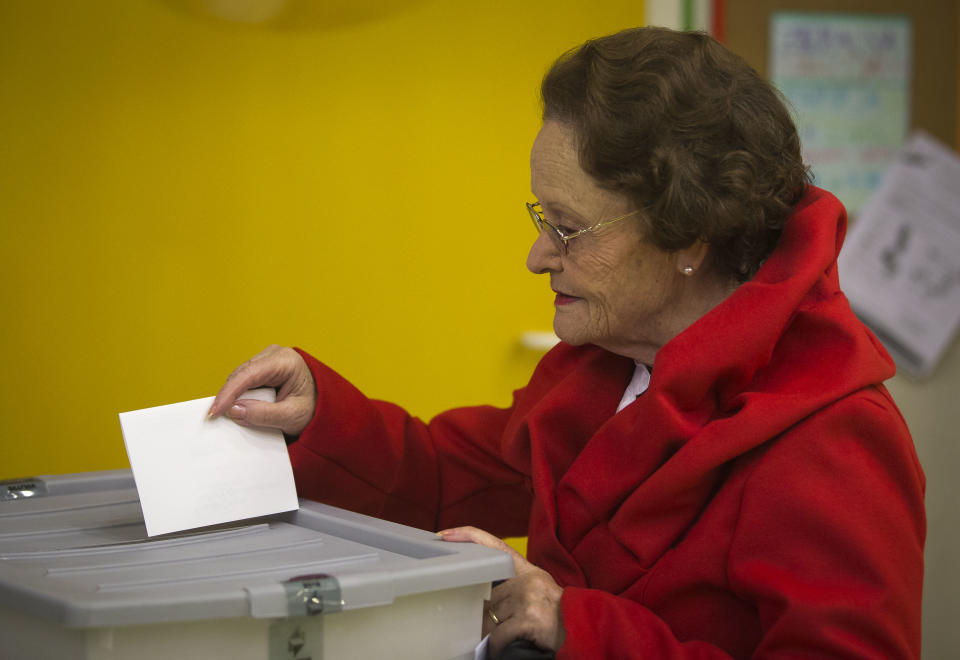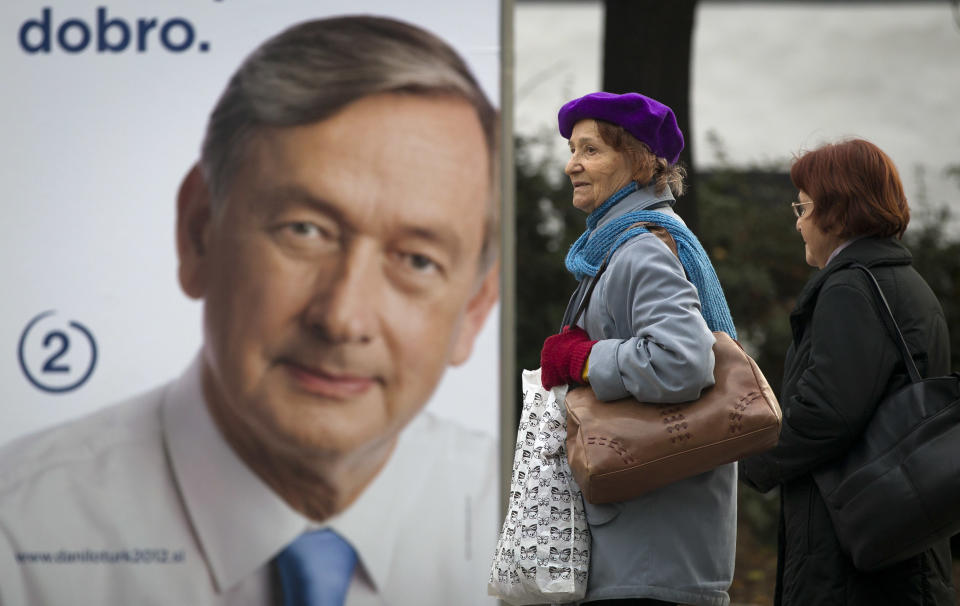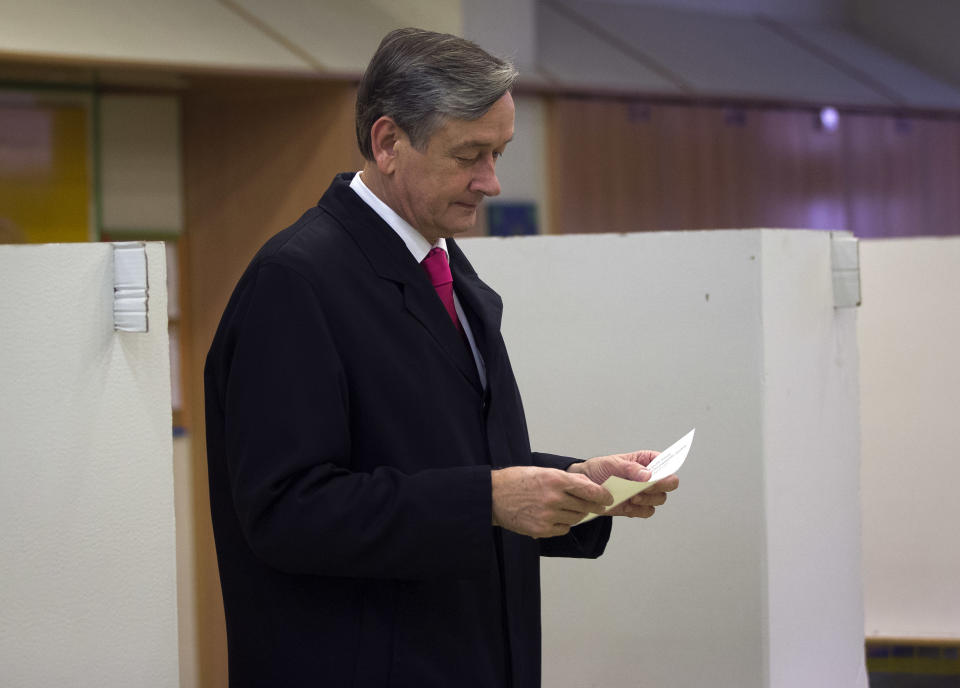Runoff expected in Slovenia presidential election
LJUBLJANA, Slovenia (AP) — No candidate appeared to win an outright majority in Sunday's presidential election in Slovenia, and a runoff is expected next month between the incumbent and a former prime minister.
Former Prime Minister Borut Pahor was first with 40 percent of the vote, followed by President Danilo Turk, with 36.2 percent and center-right candidate Milan Zver at 24 percent, the state election commission said after 99.9 percent of the ballots were counted.
If that outcome holds when the commission announces the official results in the coming days, a runoff between the top two candidates will be held on Dec. 2.
Pahor's lead was viewed as a surprise since Turk had been tipped to be the frontrunner in Sunday's election.
But a runoff had been widely expected in the race for the presidential office — a largely ceremonial post in Slovenia but one that commands political authority.
When the initial result started coming in, Pahor said the "confidence of the people is much higher than I had expected."
"But I can promise that my activities and achievements — if I am elected president — will be much higher than expected," he added.
Political analyst Tone Jerovsek said Pahor was finishing first because "his statements were never radical," convincing the voters that he could bring together Slovenia's divided political scene.
A disappointed Turk said he looks forward to a runoff.
The election comes as Slovenia — a small, economically struggling country of 2 million — faces risks of needing an international economic bailout.
Chosen for a five-year term, the president heads the army and proposes the national bank chief. The latter is an especially sensitive task considering the severe financial crisis caused here by state-owned banks' rampant lending.
The presidential race also affects political stability in Slovenia, where the government of Prime Minister Janez Jansa faces strong opposition to the reform package it believes will help save the economy, such as pension and labor reforms.
Jansa's government also has pushed for the recapitalization of banks and the creation of a so-called wealth fund to manage state property, but the opposition is demanding a referendum be held on those measures.
Jansa said Sunday that his support for any of the two candidates in the second round will depend on their endorsement of the reform package.
Both Turk and Pahor have criticized Jansa's government. But they also have called for unity in the face of the crisis.
"Slovenia is a country for all ... our mutual obligation and our mutual responsibility," the 60-year-old Turk said upon casting ballot on Sunday.
Pahor, 49, has said his aim is to restore confidence among politicians and people in Slovenia. Pahor served as the prime minster from 2008 until last year when his government fell over deepening economic troubles paving the way for a snap parliamentary vote last December.
Slovenia has been hit hard by the global economic downturn and the debt crisis in the eurozone. Once a prosperous EU newcomer, the former Yugoslav republic has been tipped as the next country that could seek outsiders' financial help, joining a list that includes Greece, Ireland, Spain, Portugal and Cyprus.
But many voters hope things can improve.
"I think it will be better," said Miro Pogavc, a 75-year-old retiree, as he cast ballot in the capital, Ljubljana. "Less fighting among us, and a better life. That's my opinion."
Turnout at Sunday's balloting was expected to be around 47 percent.
_____
Jovana Gec contributed from Belgrade, Serbia, and Amer Cohadzic in Ljubljana.



